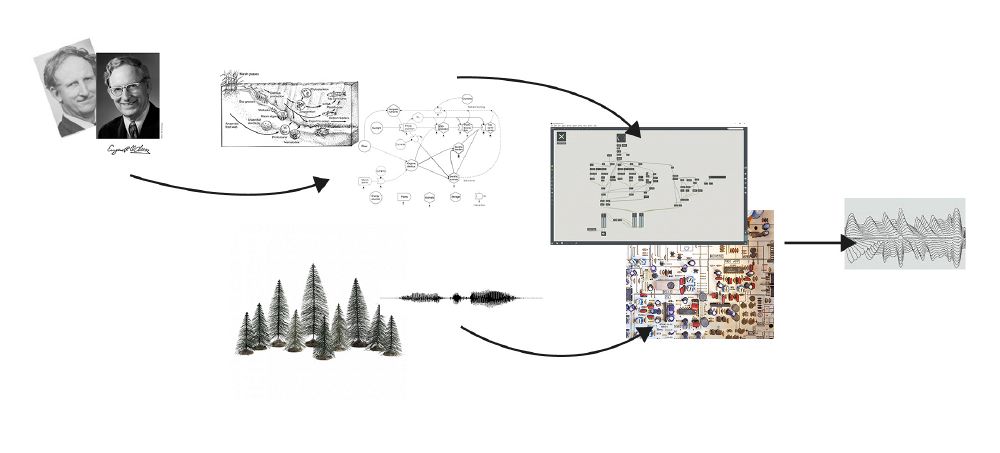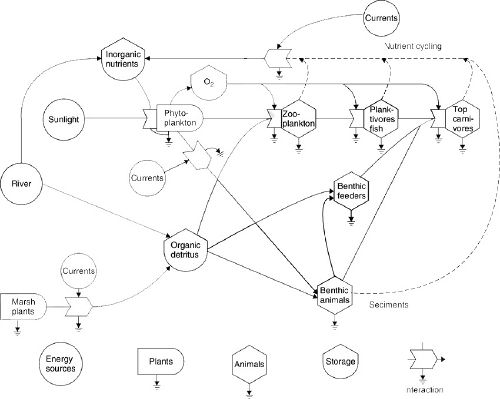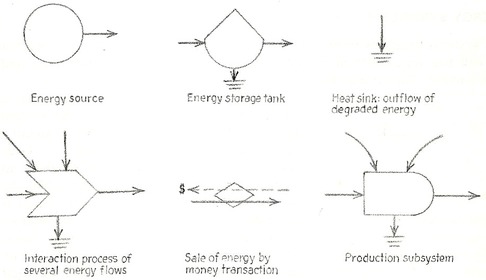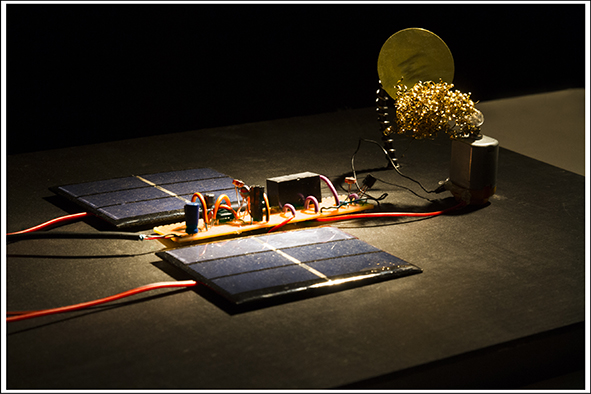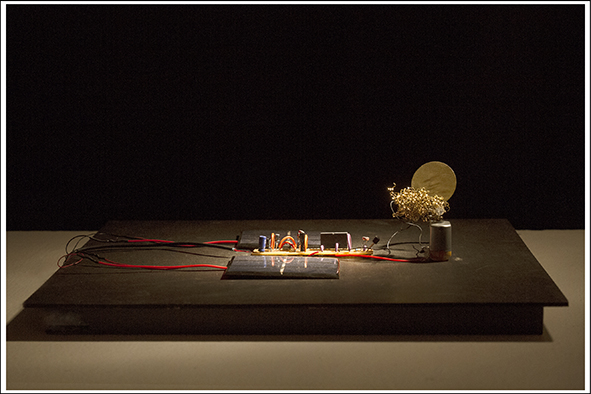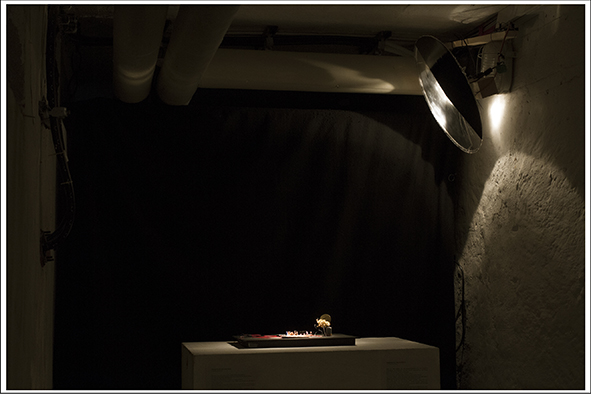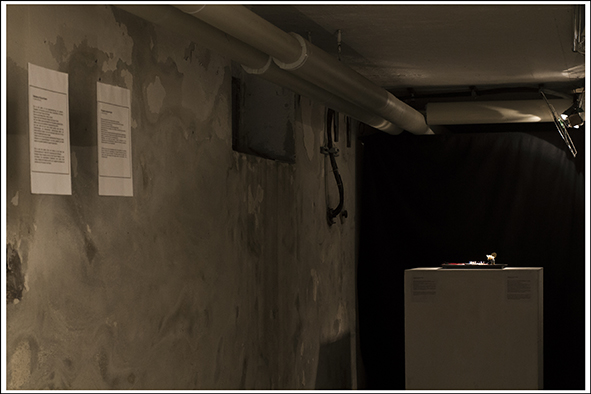Listening to an ecosystem
Content
- Workshop Wolfgang Spahn
- Workshop Špela Petrič
- Project Proposal
- Project Documentation
Project Proposal
My attention is focused on the concept of the ecosystem and the system dynamics of the early 50s.
Howard and Eugene Odum established the idea that the entire ecosystem strives for a steady equilibrium and, as long as mankind respects it, will settle again and again.
To explain this idea, Howard Odum had developed a system that transfers each organism into electronic components that either releases or takes energy and translate the ecosystem into a series of feedback loops.
Although this concept of the ecosystem has not proved true, it is now the basis of our financial systems and has already led to several crises around the world.
The critical point in Howard Odum's work is the strong simplification of his system. This led to the success of his experiments by simply ignoring disturbing factors.
I would like to try to rebuild such a system to better understand it. I am more interested in the aspect of translating nature into technology than in our financial system. Therefore, I would like to choose a relatively small system to which I have access to the analogue world. For example, a lake or stream, a certain type of forest or even just small symbiotic structures within a system. It should be something that is available to me for expeditions and research in the vicinity.
I'm interested in whether this system and its equilibrium can be reconciled. If each organism is a specific electronic component, it also makes a specific noise. Is it possible to identify the patterns of the ecosystem and how does that sound for all the actors together to produce equilibrium?
Another machine that interests me on this subject is the one in which you can feed the sound, i.e. field recordings, from the selected range and edit it according to the parameters of the Odum system. How is the sound from nature opposed to the sound of the machine?
For the second project I would transfer the machine into a digital system (e.g. MaxMas/PD) that would make it easier to transfer the sound and make more flexible changes.
For the presentation of the work, I can imagine an exhibition in which on the one hand the machines and other working models created on the way to them are shown. The second machine I have described can also be described in a video work in which one can establish a stronger connection to the analyzed place and compare the two sound worlds.
drawings/sketches
Here you find the description of my project in a sketch:
These are sketches from Howard Odums translation of an ecosystem and Jay Forrester concept of other systems:
to do's
- get a better understanding of how the systems of the Odums work
- find out components I have to use
- find a system or piece of a system that I can use for my idea
- start to experiment with own little models
These points have to be done before MusicMakers Hack Lab at CTM! (28.01.2019)
- find a nice exhibition space to showcase the finished work in March
Fundamentals of Ecology
- First law of thermodynamics: Energy may be transformed from one type into another but is never created or destroyed.
- Second law of thermodynamics: No progress involving an energy transformation will spontaneously occur unless there is a degradation of the energy from a concentrated form into dispersed form.
- One example regarding one single being: A being takes in chemical potential energy of food and converts a large part into heat to enable a small part of the energy to be reestablished as the chemical potential energy of new protoplasm1.
- First, one has to consider the total amount of energy within an ecosystem and then think of the smaller amounts that flow through an organism.
readings:
"the limits to growth"- Club of Rome
"Fundamentals of Ecology" - Eugene P. Odum (Especially Chapter 3)
"Cyberneticy" - Norbert Wiener
Explanations and other sources/information
1Protoplasma (wikipedia)
Alfred J. Lotka
Erwin Schrödinger
